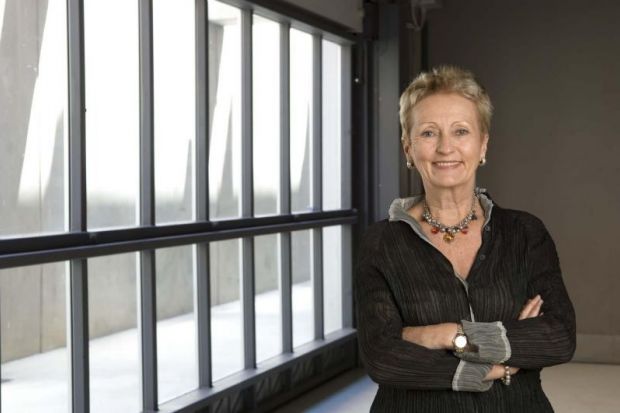Australian higher education has lost one of its most influential voices with the death of former University of South Australia (UniSA) vice-chancellor Denise Bradley.
Professor Bradley led the 2008 higher education review that spawned Australia’s demand-driven funding system – later mimicked in the UK – and the establishment of the Tertiary Education Quality and Standards Agency, among other major reforms.
Her review put various issues firmly on the policy agenda, particularly articulation between the vocational and higher education sectors. It also included intensive work to improve the income support system for students from underprivileged backgrounds.
While reforms in both areas are a work in progress, her efforts led to the elimination of a tax anomaly loophole that had enabled students from wealthy families to monopolise income support payments.
Her review also highlighted the need to improve university participation by people from under-represented groups, spawning major growth in ‘non-traditional’ admissions. The focus on equity reflected advances at UniSA and was borne from personal experience.
“In her own career, she battled all the pervasive stereotypes of her era about working women, married women and women with children, and carved out a brilliant career that took her from high school teacher to one of the most respected leaders in higher education in Australia,” UniSA said in a statement.
Current vice-chancellor David Lloyd said Professor Bradley had “one of best understandings of higher education” in the nation. “Her influence on university sector governance and policy leadership has been extraordinary.
“The Bradley review set vital benchmarks for higher education participation, designed to ensure Australia could justify its claim as the clever country.”
Professor Bradley died after a long illness and is survived by her husband, children and grandchildren. Education minister Dan Tehan said the "extensive" honours paid to Professor Bradley included being named South Australian of the Year in 2005 and a Companion of the Order of Australia in 2008.
“Professor Bradley was a passionate advocate for increasing the number of people from low socioeconomic backgrounds who went to university. And her legacy is evident through increased participation rates."
Australian National University expert Andrew Norton said Denise Bradley had made a significant contribution to higher education policy from the 1980s. But her chairing of the Bradley review and the subsequent introduction of the demand-driven system “stands out”, he said.
“Previously, ending caps on student numbers had been anxiously dismissed as a voucher scheme - a danger to less-prestigious universities and linked to deregulated fees in the minds of many. The Bradley report broke the link with deregulated fees [and] gave the idea a strong equity focus.
“Although demand-driven funding ended in 2017, there is a lasting legacy in the graduates who would not otherwise have degrees and in a changed higher education sector.”
A less-recognised but key achievement of the review was a change to the indexation measure used by the government, so that funding kept pace with inflation.
“The combination of demand-driven and indexation made the whole thing much more affordable from a university point of view,” said policy veteran Peter Norton, a member of the Bradley panel. “Denise knew that if you grow a lot without having the cash position to support it, you can end up in a world of pain because you’re growing unsustainably.”
Professor Noonan described Professor Bradley as “the most intellectually courageous” person he had ever met, avoiding offense where possible but uncompromising about intellectual integrity.
“You could always be sure that she had read and digested what you were talking about. She would have a well-informed view and she would let you know exactly what she was thinking. But she had the flexibility to listen to what other people were saying. That’s why she was such a superb chair.”
Register to continue
Why register?
- Registration is free and only takes a moment
- Once registered, you can read 3 articles a month
- Sign up for our newsletter
Subscribe
Or subscribe for unlimited access to:
- Unlimited access to news, views, insights & reviews
- Digital editions
- Digital access to THE’s university and college rankings analysis
Already registered or a current subscriber?












